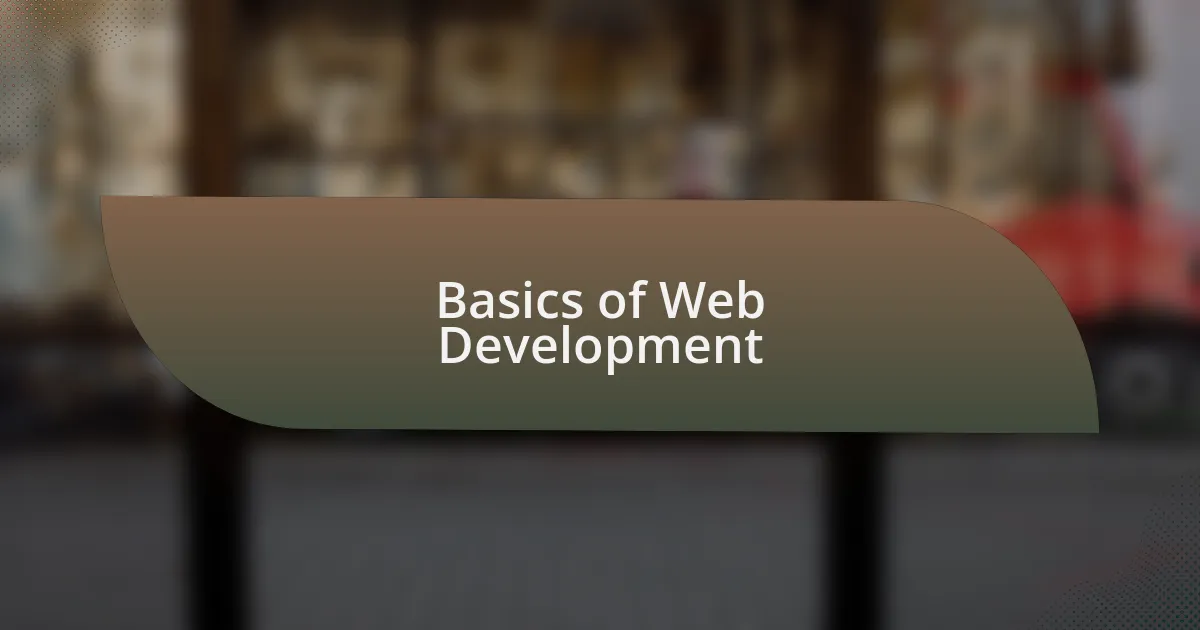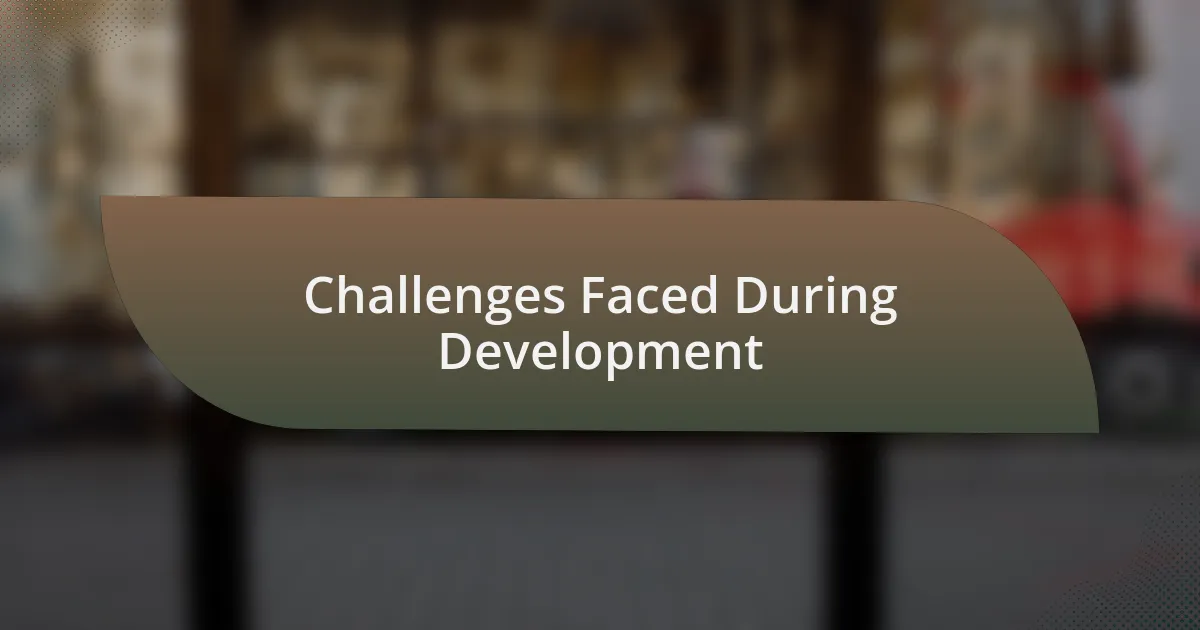Key takeaways:
- HTML structures content while CSS enhances visual styling, promoting creativity in web development.
- Mastering the basics of web development is crucial for applying more complex frameworks and ensuring usability and accessibility.
- Challenges such as browser compatibility and debugging are integral to growth as a developer, emphasizing the importance of foundational skills like the box model.
- Lessons in patience, collaboration, and time management are essential for improving coding practices and fostering personal development.

Introduction to HTML and CSS
HTML (Hypertext Markup Language) and CSS (Cascading Style Sheets) form the backbone of web development. When I first started learning these languages, I was amazed by how HTML structures content, making it both organized and accessible. Can you remember the thrill of seeing your first web page come to life?
CSS, on the other hand, took my excitement to another level. It was like having the paintbrush to decorate my HTML structure. I vividly recall spending hours experimenting with colors, fonts, and layouts, feeling a rush every time I achieved a design that mirrored my vision. Isn’t it rewarding to watch something you created transform into a visual masterpiece?
Together, HTML and CSS empower us to create engaging user experiences. They’re not just tools; they’re vehicles of creativity and expression. I still reflect on how these languages opened the door to endless possibilities in web design. Have you felt that same sense of potential when building your own sites?

Basics of Web Development
Web development is built on a solid foundation that begins with understanding HTML and CSS. I distinctly remember my first experience navigating through code; it felt like unlocking a new language. Each tag I wrote with HTML created a structure, while CSS allowed me to manipulate that structure visually. The moment I styled my text and saw immediate changes on the screen, I felt an adrenaline rush that was both thrilling and empowering.
As I delved deeper, I realized that mastering these basics was crucial for more complex frameworks and programming languages that came later. I began recognizing the relationship between functionality and design. There was this moment where simplicity met creativity—when I successfully created a simple navigation bar. It was a small win, but it boosted my confidence immensely. Do you remember your own small but significant victories when learning to code?
Moreover, grasping the fundamentals of web development isn’t just about creating pretty pages; it’s about making them usable and accessible. I thought back to times when I visited websites that were cluttered or difficult to read, and I understood my responsibility as a developer. It was then that I made it a personal mission to keep accessibility in mind, ensuring that my designs were user-friendly. Who wouldn’t want their website to be welcoming to everyone?

Challenges Faced During Development
When I started building my first website, I faced a significant challenge with browser compatibility. I vividly remember spending hours perfecting my CSS styles, only to find that my meticulously crafted layouts looked entirely different on various browsers. It was disheartening at first; how could something so beautiful on one screen be so broken on another? This taught me the importance of testing and refining my work across different platforms.
Another hurdle I encountered was learning to debug my code. There were moments when my page simply wouldn’t work, and the error messages often seemed foreign to me. I can recall one frustrating night when I was staring at my screen trying to figure out why my layout collapsed. What I realized is that debugging isn’t just a technical process; it’s a skill that demands patience and persistence. Embracing that trial-and-error aspect was key to my growth as a developer.
Lastly, I had to grapple with understanding the box model, a fundamental concept in CSS that dictates how elements are sized and spaced. Initially, I found myself confused by why my divs didn’t behave as I expected them to, leading to unintended overlaps and gaps. It felt like trying to solve a puzzle where the pieces kept changing shape. This experience underscored the importance of truly grasping foundational concepts, as it directly impacts the design’s execution. Have you ever found yourself stuck trying to fit puzzle pieces together, only to find a revelation waiting on the other side?

Lessons Learned from My Experience
One of the most profound lessons I learned was the value of patience. I remember one late afternoon after a long day of coding, feeling incredibly frustrated because I couldn’t get a simple hover effect to work. I kept tweaking the CSS, but nothing seemed to improve. It was in that moment that I realized rushing through the process only led to more mistakes. Taking a step back to reassess my work often provided clearer insight, turning moments of frustration into opportunities for deeper understanding.
Collaboration was another unexpected lesson. Early on, I had a tendency to work in isolation, thinking I could tackle everything myself. However, I vividly recall a project where I partnered with a friend who was also learning HTML and CSS. Their fresh perspective helped me see flaws in my code that I had been blind to. It reinforced my belief that seeking feedback and engaging with others not only enhances your skills but also sparks creativity that can take your projects to the next level.
Moreover, managing my time effectively emerged as a critical skill. I distinctly remember the rush leading up to a project deadline when I was juggling multiple tasks. I had days of progress vanish in moments of poor planning, leaving me overwhelmed. By incorporating tools to schedule my tasks and breaking down bigger goals into manageable steps, I discovered a newfound sense of control. This experience taught me that time management is not just about workload; it’s about creating a sustainable rhythm that fosters growth and reduces stress. Have you ever found that balance becomes a game-changer in your work?